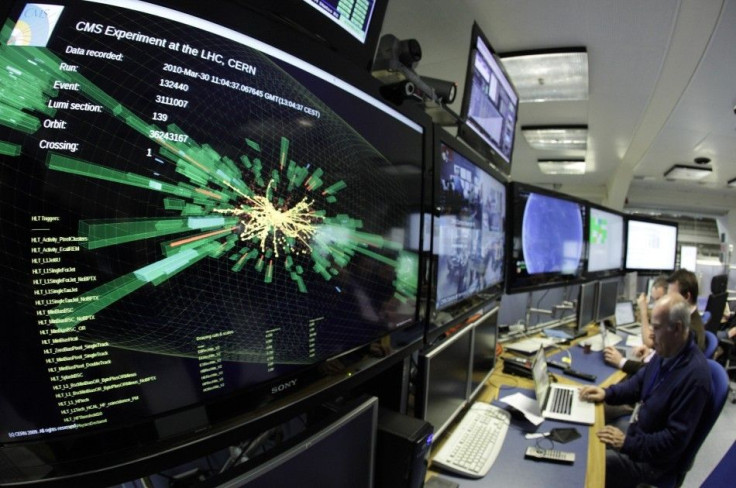Higgs Boson Signals Fade Narrows at Large Hadron Collider

It was pure excitement last month when CERN scientists reported they glimpsed the greatest riddle in all of physics - the elusive Higgs-Boson particle.
Those signals have since faded, scientists said on Monday, dashing the hopes of researchers who have long been trying to find the particle believed to give objects mass.
We see no striking evidence of anything that could resemble a discovery, Guido Tonelli, spokesman for the Compact Muon Solenoid (CMS) detector group at Cern, told the Guardian.
In July, researchers at the Large Hadron Collider (LHC), near Geneva, noticed some tantalizing signals in their data that they thought might be caused by the particle. However, the latest analyses, which is based on nearly twice as much data, has shown that those signals have considerably weakened.
The Higgs-Boson ? sometimes described as the God particle because of its mystery yet powerful force of nature ? if at all it exists, signifies the final piece of the Standard Model of physics.
The news of the fading signals broke at the Lepton-Photon conference in Mumbai.
Physicists will now search for the Higgs-Boson at lower and higher energy ranges. And it is much harder to detect new particles in these ranges.
And LHC researchers aren't giving up any time soon, as they still believe they will either have found the particle by the end of next year or confirmed that it doesn't exist in the form proposed by the Standard Model.
I think it has always been a possibility that the Higgs would not be there but I don't think we are ready to say that at this moment, said physicist Howard Gordon, deputy US ATLAS operations program manager, to AFP.
ATLAS is the biggest particle collider lab at the European Organization for LHC.
In a statement summarizing the latest data, which was released at the Mumbai conference, the LHC's ATLAS and CMS experiments excluded with 95 percent certainty the existence of a Higgs over most of the mass region from 145 to 466 GeV, according to AFP.
So what happens next?
CERN research director Sergio Bertolucci told AFP that whether the particle exists or not, scientists expect to know more by next year.
Discoveries are almost assured within the next 12 months, Bertolucci said. If the Higgs exists, the LHC experiments will soon find it. If it does not, its absence will point the way to new physics.
© Copyright IBTimes 2025. All rights reserved.






















